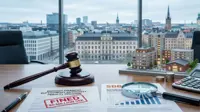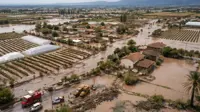Russia’s lower house of parliament on Wednesday approved constitutional changes that allow President Vladimir Putin to run for president again in 2024, opening the way for him to potentially stay in power until 2036.
Russian constitution requires Putin, 67, to step down in 2024 when his second consecutive term as president and fourth in the office of the president ends. But the amendment to the constitution, which he also backed, would formally allow him to contest presidential poll yet again.
The 450-seat State Duma, the lower house of parliament, on Wednesday voted in favour of the change, along with other amendments to the constitution, by 383 votes, in a third and final reading. Nobody voted against, but 43 lawmakers abstained while 24 lawmakers were absent.
Putin made a dramatic appearance in the chamber a day earlier to argue that term limits were less important in times of crisis.
Putin, a former KGB officer, has dominated the Russian political landscape for two decades as either president or prime minister. He also has the nation’s backing for changes in the constitution, which was put on vote in April last year.
Depending on his electoral fortunes and physical health, Putin would now be able to potentially stay in power for another two terms, taking his term in office to six, or 36 years, a rare achievement for any political leader in the world.
Putin has not spelled out what his plans for the future are after 2024, but has said he does not favour the Soviet-era practice of having leaders for life who die in office.
Putin has proposed a major shake-up of Russian politics, which the Kremlin sees as a redistribution of power from the presidency to parliament. His critics, however, see it as a ploy to keep Putin in power after 2024.
Opposition activists have said they plan to organise protests as early as Friday against the move to allow Putin to stay on. But that seems to be a difficult proposition as a government order has banned public gatherings of more than 5,000 people until 10 April due to coronavirus-related risks.
The changes approved by the State Duma will now be reviewed by the upper house of parliament.



















